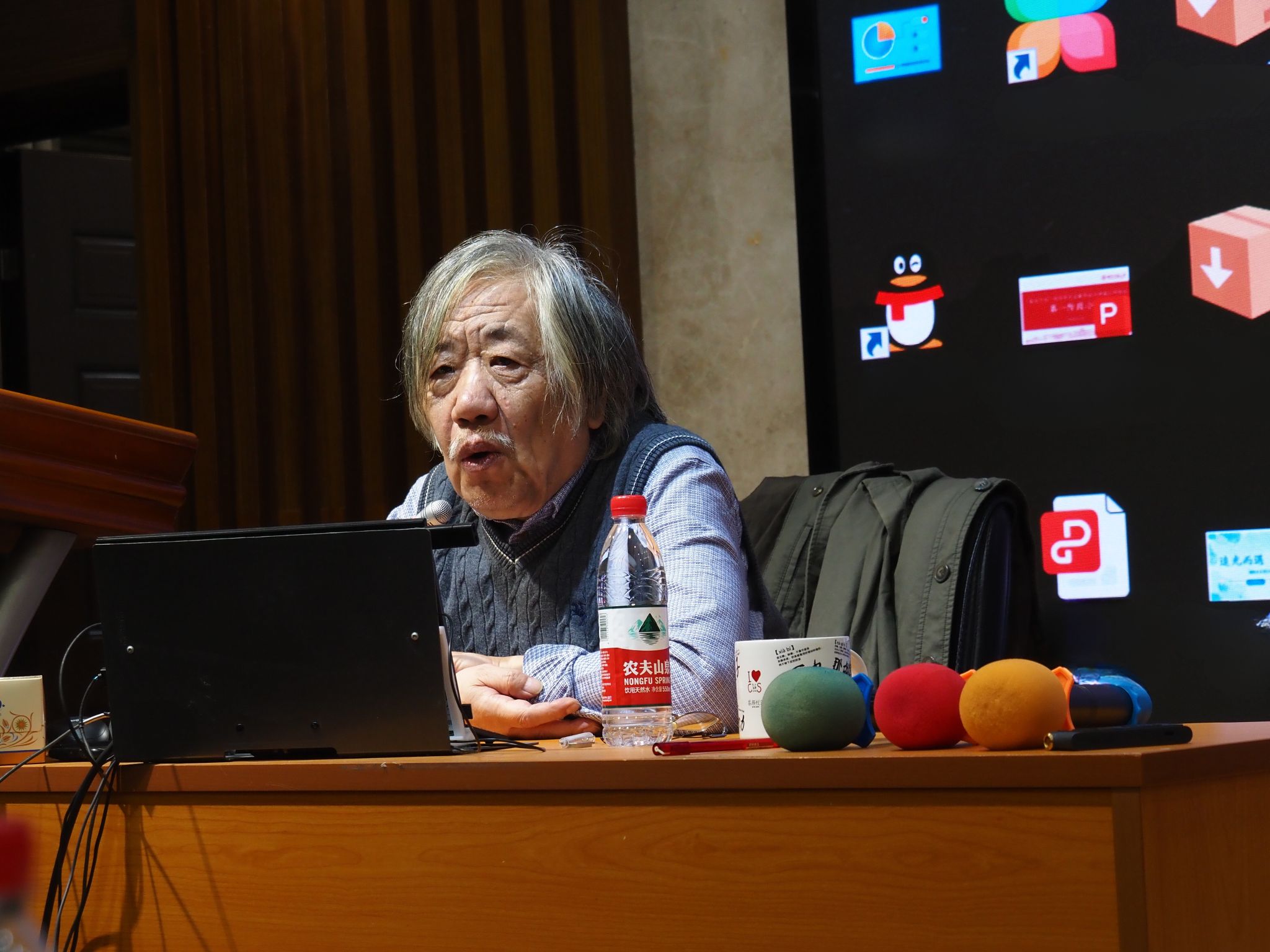
On the evening of October 26th at 7:00 PM, the Foreign Studies College at Hunan Normal University held a lecture on "Atmospheric Aesthetics" in Room 515 of the Tenglong Building. The lecture was hosted by Professor Xie Minmin from the Foreign Studies College , with Professor Wang Bingjun from Beijing Foreign Studies University invited as the keynote speaker. Professor Wang is an outstanding scholar in the field of German literature in China, serving as the director of the Institute of Foreign Literature at Beijing Foreign Studies University, as well as the editor-in-chief of German Language Learning and its academic version, and the associate editor of Peking University German Studies. His main research interests include German literature, literary theory, and cultural studies. He has an extensive academic portfolio, having published numerous monographs and dozens of academic papers, including The Reception History of Goethe's Novels in Germany Since 1954, Literature and Cognition: Advanced German Literature Course, and the translated volume Experience and Poverty: Aesthetic Anthology of Walter Benjamin.
During the lecture, Professor Wang provided an in-depth exploration of the development of atmospheric aesthetics, tracing its evolution from deconstructionism in the 1960s and 1970s to environmental consciousness and a focus on nature in the 1980s, and then to observations of objects and issues of dehumanization in the 1990s, as well as a reflection on subjectivity and concepts of progress and development. He argued that the pursuit of modernity has, to some extent, led to counterproductive outcomes; for example, the widespread use of cars has resulted in traffic congestion, which he described as self-destructive behavior.
Professor Wang also discussed issues of materiality and the importance of seeking alternative possibilities in the binary beyond. He specifically highlighted the core position of the atmosphere in Germany in the 1990s as a new phenomenon, along with the contributions of Smith and Bormo to this field of aesthetics.
In his lecture, he addressed the overcoming of the binary thinking model of subject and object in Italy, as well as how atmosphere is artificially generated from the perspectives of aesthetics and the arts. He explained the basic definition of the concept of atmosphere and explored the ambiguous relationship between the concepts of atmosphere and Stimmung.
Professor Wang emphasized that poetry is not a cognitive concept but rather an expression that conveys a sense of existence through the presence of the body, and this existence is atmosphere. Using Goethe’s poetry as an example, he described atmosphere as an invisible, immaterial form that can be perceived through feelings. He further elaborated on the dissolution of the subject and the opening of the boundaries of the subject, highlighting that atmosphere can only be felt when "I" am present.
In the final part of the lecture, Professor Wang discussed the development of aesthetics as a discipline and its relationship with subjective experience. He mentioned God's omnipotence, sentimentality, the search for spiritual direction, and how the medium of writing can widen the distance between people. He also touched on the feelings of the mind, emphasizing emotions, subjectivity, and the relationship between the subject and nature.
Professor Wang's lecture was rich in content, covering concepts of interest from the 17th and 18th centuries to a deep analysis of modern aesthetics and contemporary atmospheric aesthetics. His lecture not only provided students and faculty present with an opportunity to gain a deeper understanding of atmospheric aesthetics but also enriched the academic atmosphere at the School of Foreign Languages at Hunan Normal University. The successful hosting of this lecture showcased the deep academic foundation of the School of Foreign Languages and provided a valuable learning opportunity for students and faculty alike. We look forward to more high-quality academic events like this in the future to promote development and exchange in the academic community.